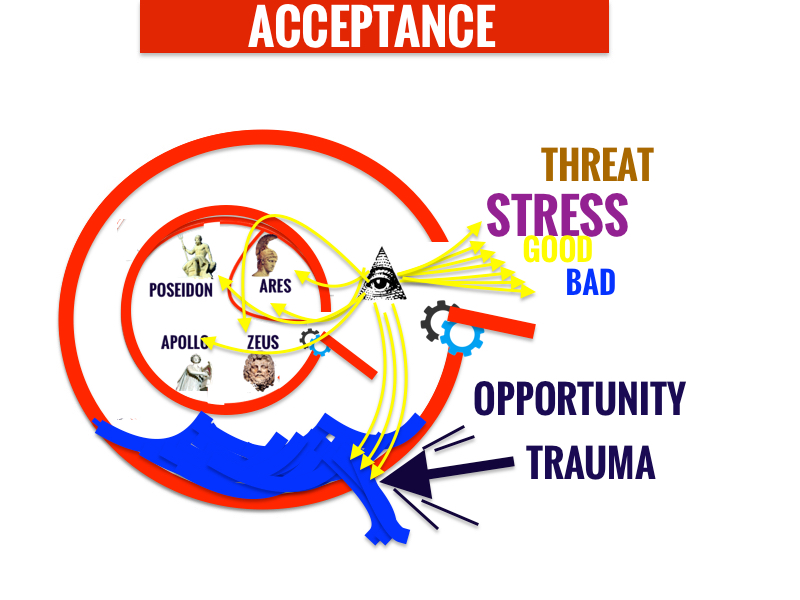Many of us have heard of the “5 stages of grief”: the process where denial, anger, bargaining, depression and acceptance help us get over a major loss, such as that of a person from our lives. The final resting point where stability is regained is considered to be acceptance, a condition of equanimity and peace, and if you consider it in terms of solid boundaries, a person who has a solid boundary without a lot of holes to suffer through, or a complete understanding of what one controls from what they do not.
Such a mature person does not attempt to change a disagreeable circumstance, doesn’t protest it, or struggle and suffer over it more than is seen in any normal, imperfect human.
We may be reminded of “the patience of Job” - the Biblical figure who pointlessly went through all manner of stresses, traumas and losses when God turned the Devil loose on him, only to shrug his shoulders in the end, in effect saying, “What could I do? These things just happened.” All the while, he refused to “turn his back on God” or curse Him. If you think about this, it is similar to having a very strong boundary and deep recognition of what we control from what we don’t. Job not turning his back on God, or cursing Him is equivalent to not suffering. In essence, he refused to turn his back on the truth, or on reality - that there are many things in life, if not most, which we simply do not control.
Religions and psychological science often suggest acceptance as a method of managing unchangeable situations or losses, and there is even a Biblical postscript to the story - suffering may not just happen for no reason, nor just to teach us acceptance, but also to teach patience that carries a reward, for it is also said, “This too, shall pass,” and “Time heals all.”
We may see acceptance as a high virtue springing from solid boundaries, and underlining the patience needed to employ boundaries long enough to reach happiness and success, especially in times where we utterly have no control.
In the language of boundaries, we have found an easy way to describe a seemingly complex virtue in just one word - acceptance - the refusal to suffer, no matter what comes our way.
It is watching, observing, witnessing our own lives, like the narrator of a great novel, all without having to feel compelled to act.
GO BACK TO MATURE DEFENSE MECHANISMS.


